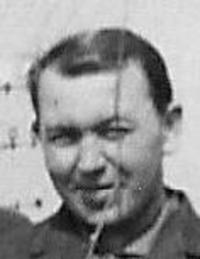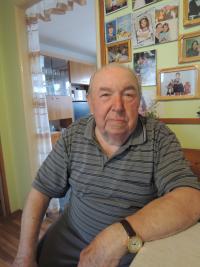Now we have only positive memories of Mušov, the bad things are already gone
Vlastimil Binder was born February 21, 1934 in a poor family in south Moravian village Ivaň. The Second World War was a difficult time for them, because his father was sent to do forced labour in Germany and the family thus often suffered from hunger. After the war they decided to deal with this uneasy situation by moving to nearby Mušov, which had been inhabited by German nationals until that time. The Binder family was among the first Czech families in post-war Mušov. However, problems occurred here as well, because Vlastimil‘s father was imprisoned four times due to his conflicts with the political regime: two times of this her served his sentence in Jáchymov. In the early 1950s Vlastimil went as an apprentice to Brno, where he later began to work in the Zbrojovka arms factory. He married in Mušov, started a family and moved into a new house. He also became an organizer of cultural and social life in Mušov, he was active in the leadership of the local Sokol organization as well as in the municipal authority. When the decision was made that Mušov would be destroyed in the construction of a new water reservoir, Vlastimil decided to move to Modřice with his family and he began to work there, but they never got used to living there and they were going to Mušov every weekend. Together with his neighbours they began building their new home in the village Pasohlávky and although Mušov no longer exists, Vlastimil Binder‘s family still lives surrounded by his former neighbours from Mušov.


